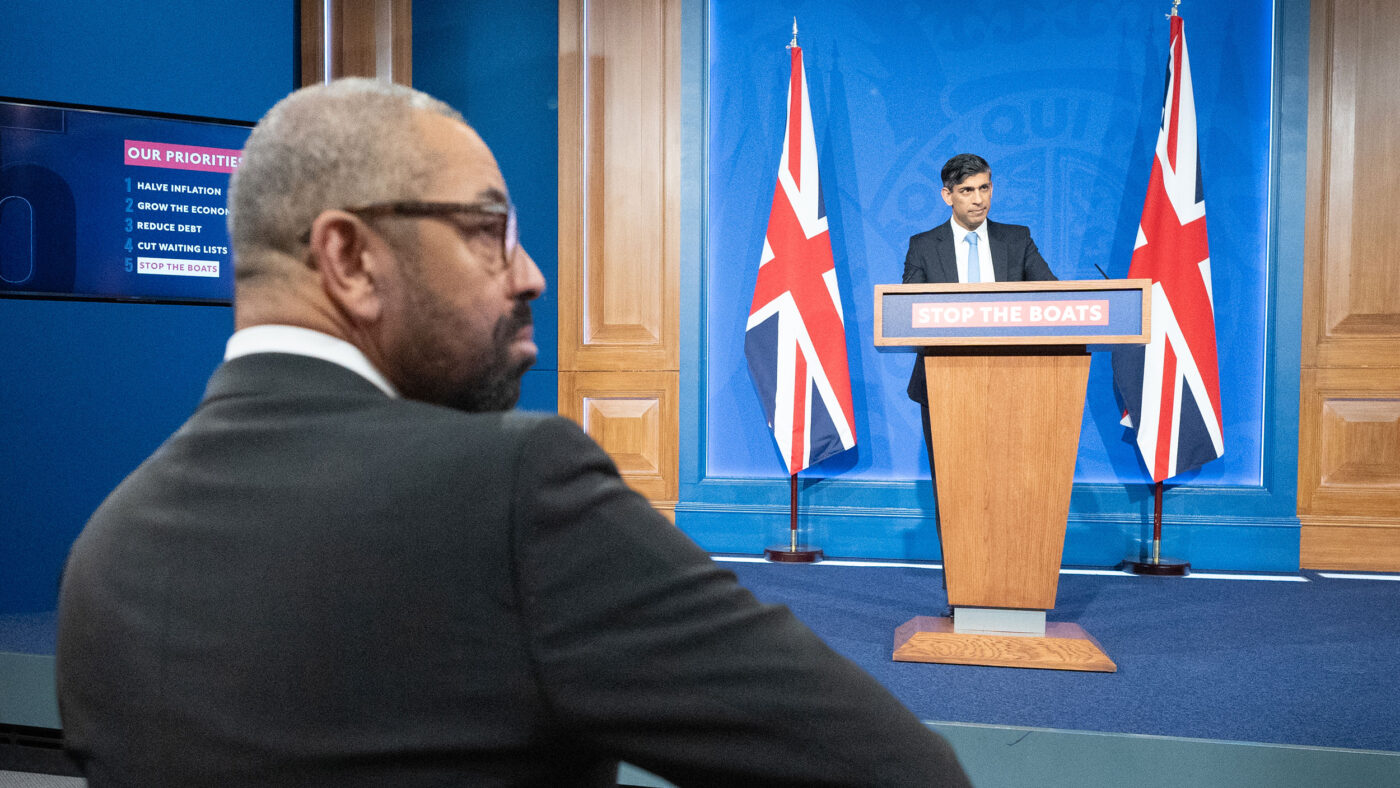With the Rwanda bill passing the House of Commons and heading for the Lords, it’s interesting to consider where the public stands on it, and the migration that it seeks to address.
Although attitudes towards immigration have clearly softened in recent years, there still remains, overall, a preference for controls in general, and on irregular migration via small boats in particular.
YouGov recently found that two-thirds (67%) of Britons thought that people arriving via small boats should be deported, and that a plurality (42%) thought they should not have legal recourse. This rose to 83% and 71% among 2019 Conservative voters, and similar proportions of 2016 Leave voters.
Immigration more broadly is also politically salient, despite the economy diverting a lot of public attention. The same pollster found in December that 41% thought it was one of the most important issues facing the country, with about half of those seeing it as the most important issue.
The first of these figures rose to 66% among 2019 Conservatives, and to 90% among the subset of 2019 Tories subsequently lost to the Reform Party, and almost half (46%) among those lost to parties on their left.
But what about the Rwanda plan itself? Different pollsters have approached this in different ways and found different results. In general, however, the public has been relatively evenly split between support for the plan or something similar and opposition, with higher support among Conservative voters.
Among those opposing the plan it’s harder to say which dislike what the Rwanda scheme sets out to do, and which support its aims but think it will fail to achieve them. But scepticism is clearly widespread.
Immediately prior to the third reading, 28% thought it would be ‘very’ or ‘fairly’ effective at stopping the boats, compared with 53% who thought it would be ‘not very’ or ‘not at all’ effective.
But supposing the Rwanda plan works, does it help the Conservatives? Voters seem to suggest that there would be rewards. Nearly half (44%) of 2019 Conservatives told YouGov that stopping migrants coming in small boats would be one of the things that would most encourage them to stick or return to the Tories at the next general election.
The caveat, of course, is that people aren’t good at predicting how they would behave, feel or vote in hypothetical scenarios, so this exercise – while interesting – is no guarantee of any particular outcome.
That, of course, leads us onto the political backdrop to the Rwanda debate, against which it needs to be considered. The Conservatives have a large polling deficit and poll badly on almost every issue. Taking such a tough line on immigration isn’t simply about party management (though that will also be a consideration for Rishi Sunak) but about trying to recover votes lost to Reform and to ‘don’t know’.
The problem for the Tories is that in terms of swing – the single most important number in a first past the post election – it takes two votes gained or regained from Reform or ‘don’t know’ to offset one lost to Labour. And while it may be that successfully stopping the boats results in the former outweighing the latter, this would still not be enough to keep them in government.
What really matters is perceptions of competence. Delivering on migration may help to that end, but it is a high stakes game. Success is not in itself sufficient, while the consequences of failure – potentially alienating voters left and right – could be disastrous.
Click here to subscribe to our daily briefing – the best pieces from CapX and across the web.
CapX depends on the generosity of its readers. If you value what we do, please consider making a donation.


